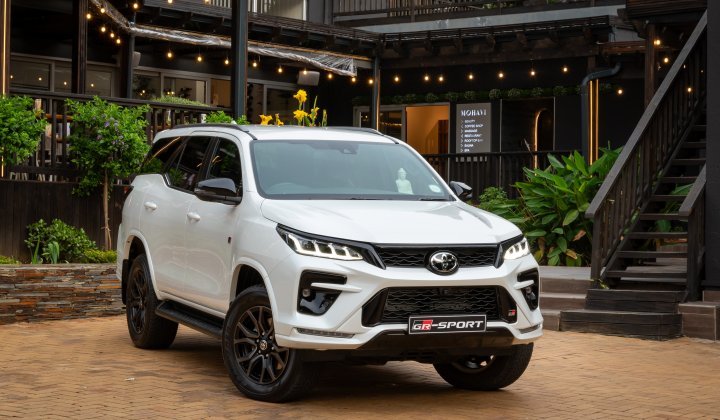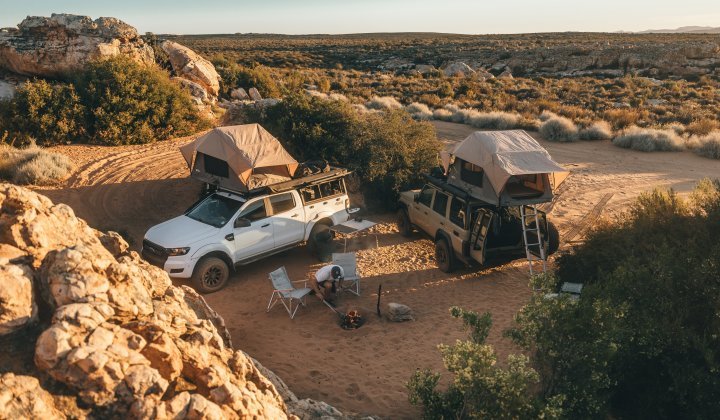Travel Power - Africa
Penny Ndlela, founder and CEO of Soul Traveller Tours, is on a mission to get South Africans to fall in love with their country and continent. She also wants to break down barriers by creating experiences that allow people to share their cultures.
“We have a history when there wasn’t freedom of movement within South Africa, specifically for black South Africans, which led to isolation in terms of cultures, and not enough engaging,” she says. “And even though we have 11 official languages, there wasn’t much integration and connectivity. Instead, we were foreigners to each other. So, we created group travel experiences that allow people to share stories with one another.”
To further allow people to get to know each other, the company has curated dozens of experiences for South Africans and other travellers from the region. It has also started to open its travel experiences to the continent. Its clients are looking for “an ability to engage; not just to receive information but also to share information about who they are and where they’re from”.
“For the South African traveller – and this is purely based on our history – the interest is different,” she says. “So I don’t arrive as a South African in another African country. I arrive as a Zulu person. And with that Zulu lens, I want to know about the rituals of birth and death and love. What interests me is how a tradition can evolve in a modern space, whether it is through art, music, or food. So our lens, in terms of how we want to engage with our fellow African brothers and sisters, is different. We’ve curated experiences with that in mind.”
In creating a traveller experience, it’s important to be mindful of what the traveller wants. Ndlela believes that this will help tourism providers improve the service they offer and equip people to share their stories. It’s why a big part of her business is about “investing money into something that’s going to better the community and the country”.
“What’s amazing about African Americans or people from the diaspora is the ability to articulate the story of who they are,” she says. “But it’s not easy for Africans on the continent to brag about who they are. I think it’s ingrained in how we’re raised to be reserved and not outspoken. So there’s a lot of prying before you get to exactly who the individual is. But if there was a formal training of storytelling, which we’re good at, we can tell the story in an engaging, affirming, and informative way. That’s something young people can do in terms of learning about each other.”
Connect on a real and authentic level
For a long time, African people aspired to holidays in Europe because a trip overseas set them apart from everyone else. But Ndlela is now seeing a shift. With more black travellers worldwide seeing Africa as exciting, it feels to her “like when those faraway cousins who you thought were cool suddenly think that you’re cool, too”.
“My children need to know about the baobab tree before they know about the Eiffel Tower,” she says. “My children need to know about the forward-thinking civilisations of African people before they know about Zeus and Greek mythology. And so there’s an awakening that’s happened. Everyone’s interest converged into this space that says we also have something to offer. Let me value my own backyard. Let me value my own people. Let me see what my people have.”
Indeed, the idea of having a deeper connection with other people is also a big shift, Ndela sees. Because many travellers might not feel welcome in certain places, they choose others instead. But the risk is that travelling like this becomes just a transaction in which “you pay your tour price, you get on the bus, and off you go”.
“People are over the hype,” she says. “We want to connect on a real and authentic level. We want something that’s engaging, enriching, and leaves you feeling that you’ve been acknowledged as a human being. It needs to be deeper and more relevant, which is why we’re building a new Africa to speak from our own perspective.”
At the same time, Ndela tells her team that they are “selling a holiday, not a do-good trip”. People need to feel refreshed and energised and not burdened with violence, anxiety, poverty, and all the negativity they’re trying to leave behind.
“Our history is entrenched with division and mistrust,” she says. “We all have within us viscerally that if something is African or black, I’ve got to think about it several times before I can trust it,” she says. “And so the narrative of xenophobia, as horrible as it is, set us back. That’s why we need to build bridges so that even when negativity does arise, we’re able to give each other the benefit of the doubt or engage in conversation to resolve it.”
Barriers to entry
One of the biggest challenges to promoting domestic tourism right now is dealing with the cost, with many lodges priced for the dollar or euro market in a way that’s prohibitive for locals. Not only does this make the traveller suffer (by either paying a fortune or missing out on an incredible experience), but it also impacts other aspects along the value chain.
“Why is it that for South Africans it’s cheaper to pay R20k for seven days in London versus R40k for four days in Cape Town?” Ndela asks. “It just doesn’t make economic sense. Obviously there’s been currency politics over time, which led to why domestic tourism was in single-digit percentages in South Africa. But as a property owner, I’d rather have high occupancy versus the spike of when that dollar or euro traveller arrives.”
While pricing has been exposed as a primary contributor to inhibiting people from travelling (and is the first thing that needs to be addressed), another challenge is infrastructure connectivity regarding transport. On top of this, the complicated nature of getting visas to travel throughout the continent is a huge issue. For Ndela, the only way to overcome these unhelpful barriers to entry is through government intervention.
“There isn’t a unifying board that’s able to look at the continent holistically and drive a unified objective to get connectivity going,” she says. “Countries aren’t speaking to one another. There’s definite interest, but it’s not trickling down to the effort on the ground. It’s still difficult to imagine connectivity from South Africa to Ghana to Marrakesh.”
Building from the ground up
Sorting out the connectivity issues will make it much easier for collaboration to flourish. Indeed, Ndela believes that what the tourism industry needs most right now is for everyone to actively support each other and the desire to travel again. This will create opportunities to develop new experiences and allow travellers to feel the value of the continent.
“I’m hoping that Covid brings some sort of humility and a more intentional approach,” she says. “In fact, Covid has brought us all down to our knees, and we have to build from the ground up. We’ve been provided with an opportunity – specifically governments and tourism agencies – to get back to the people. It makes for an authentic experience.”
Rebranding Africa
For many black people in the diaspora, Africa is still just a faraway place they don’t know much about. To address this, Rondel Holder, creator of Soul Society 101, believes it’s important to identify local influencers within every country and bring them together.
“I would love to see tourism boards in Africa partner with content creators to develop content that they want to see,” he says. “When I want to go to a country in Europe, the tourism board sometimes replies within hours. But when I reach out to tourism boards in Africa, I hear crickets. Thankfully, local people have always been welcoming and show me the real experience. But there’s so much more content that I could create should tourism boards be receptive and want to work with us to make something magical.”
Managing content also means managing perceptions. Holder believes there would be a lot less negative coverage about Africa in the media if tourism boards were more proactive about shaping the narrative. And even though a global pandemic might be an insensitive time to promote jetsetters living their #bestlife, Holder believes now is a good time to start collaborating.
“Bad news travels 10 times faster than good news,” he says. “You can have so many positive stories, and even word-of-mouth experiences from people who’ve travelled to the continent, but then you’ll read one headline of xenophobia or someone who got killed. This is unfortunate because the connection is so far removed. And even if it was a once-off situation that doesn’t affect your everyday experience, you’re automatically going to think it’s unsafe to go there.”
Although Holder believes that “the truth should obviously be out there”, he also emphasises the need to have positive narratives to balance it out. It’s about showcasing the full experience so that people can make more informed choices.
“The truth is that bad things happen everywhere,” he says. “For example, if there weren’t so many great things you heard about New York every day, no one would come here either. So that’s the work local groups and tourism organisations have to do in amplifying the positivity, even when it seems like it’s not necessary.”
This is why Holder believes it’s so important to develop partnerships with the right content creators. When he travels to different countries, he works to find these people, many of whom aren’t supported by local tourism organisations even though they create the desire to be there.
“Now, in this downtime that shouldn’t be downtime, we can start planning what to do when things open up,” he says. “We have the audience, we have the community, and we have the skillset. So, let’s work together and make it happen.”




